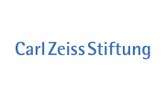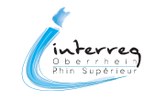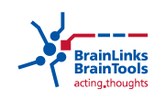Ian S. Howard (Plymouth University, UK) | Past and future actions influence motor learning
| When |
Jan 12, 2016
from 05:15 PM to 06:45 PM |
|---|---|
| Where | BCF Lecture Hall, Hansastr. 9a |
| Contact Name | Carsten Mehring |
| Add event to calendar |
|
Abstract
In ball sports, the role of backswing and follow-through are both considered important for generating a good shot, even though they play no direct role in hitting the ball. Here we demonstrate the scientific basis of both of these phenomena by showing that immediate past and future movements affect the learning and recall of motor memories during skill acquisition.
Here we first present results from a set of experiments that investigated the effect of immediate past movement on dynamic learning using an interference paradigm implemented on a vBOT robotic device. It is well know that when human participants make movements whilst subject to opposing dynamic force fields that change randomly between subsequent movements, substantial motor interference occurs and neither force field is learned. However when additional information in form of a contextual cue is available, this can lead to a reduction in motor interference and enable learning of both opposing force fields. Our study involved participants making two-part movements. The first part constituted a contextual movement that was predictive of the opposing dynamics experienced in the second part. It was found that such recent immediate past movement provided a very strong source of contextual information that critically affected the subsequent movement and enabled both opposing dynamics to be learned. However the effect died away rapidly as the dwell time between the two movements parts increased towards one second.
Several force field studies have shown that motor memories generalize locally and that the level of compensation decays as a function of movement angle away from the trained movement. Here we next examine if the contextual effect of past movement exhibits similar patterns of generalization and whether it can explain behavior seen in interference studies. We found that this was indeed the case. This demonstrates that similar tuning responses underlie both generalization of movement direction during dynamic learning and contextual movements in both single force field and interference tasks.
Finally we present results from a set of experiments that investigated the corresponding contextual effects of immediate future movement. This used a similar two-part movement paradigm but this time the second movement constituted a contextual movement that was predictive of the opposing dynamics experienced in the first movement. We again found that this led to a significant reduction in interference. This suggested that variations in the follow-through of a movement could influence the partitioning of motor learning. We hypothesized that if one of many future movements directly followed a single dynamic leaning task, each separate future direction would partition the learning in the preceding movement resulting in slower learning. In contrast, if there were only a single future movement, no such partitioning would occur, resulting in faster learning. We found that the learning rate was indeed significantly faster with a single future direction compared to multiple future directions.
Overall our results suggest that there is a critical period both before and after a current movement that determines motor memory activation and controls learning.











